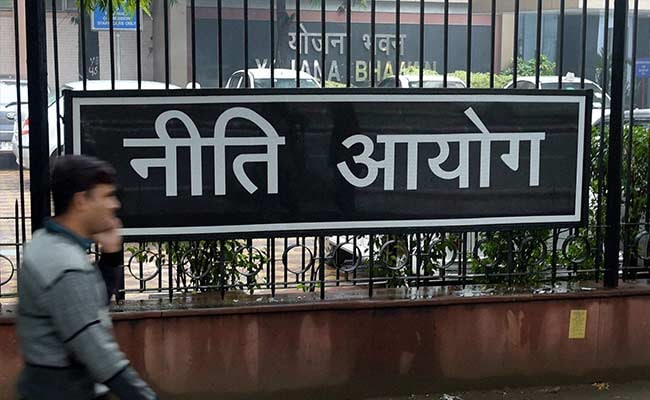
Kolkata:
Observing that India cannot grow without the development of its eastern parts, economist and NITI Aayog member Bibek Debroy on Saturday said economic integration with neighbouring countries was imperative for the prosperity of the region.
Speaking at an Indian Chamber of Commerce organised event in Kolkata, Mr Debroy said the region's potential lies in agriculture and not manufacturing alone.
"India cannot grow at the desired level until the eastern parts of India also grow. By eastern part I mean, eastern part of UP, Bihar, Jharkhand, Odisha, West Bengal and the entire north eastern region.
"The eastern part of the country can only prosper when economic integration happens with neighbouring countries like Nepal, Bangladesh, Bhutan, Myanmar, (others in) southeast Asia and even parts of China," he said.
Asserting that 'Make in India' doesn't means manufacturing alone, Mr Debroy said decentralisation of governance and development of physical infrastructure was essential for the region to grow.
"There is enormous amount of slack as well potential in West Bengal. But that doesn't mean, to grow it has to manufacture in the strict corporate sense of manufacturing. Make in India doesn't necessarily mean manufacturing alone.
"The great growth potential of this part lies in agriculture and agr0based stuff, because that is where the slack is the largest," he said.
Claiming there was excessive government interference, Mr Debroy said decentralization was essential for effective distribution of public goods and services.
"If the public good and services are delivered efficiently then there is no need for subsidies. To ensure efficient delivery of public goods and services, it is extremely important to emphasize on the need for decentralization and devolution not only within the central and state governments but also down to the local governments.
"Since the past 60 years, there is an excessive degree of govern interference and one of the tasks of reforms is to reduce this malign role of the government," added Mr Debroy.
Speaking at an Indian Chamber of Commerce organised event in Kolkata, Mr Debroy said the region's potential lies in agriculture and not manufacturing alone.
"India cannot grow at the desired level until the eastern parts of India also grow. By eastern part I mean, eastern part of UP, Bihar, Jharkhand, Odisha, West Bengal and the entire north eastern region.
"The eastern part of the country can only prosper when economic integration happens with neighbouring countries like Nepal, Bangladesh, Bhutan, Myanmar, (others in) southeast Asia and even parts of China," he said.
Asserting that 'Make in India' doesn't means manufacturing alone, Mr Debroy said decentralisation of governance and development of physical infrastructure was essential for the region to grow.
"There is enormous amount of slack as well potential in West Bengal. But that doesn't mean, to grow it has to manufacture in the strict corporate sense of manufacturing. Make in India doesn't necessarily mean manufacturing alone.
"The great growth potential of this part lies in agriculture and agr0based stuff, because that is where the slack is the largest," he said.
Claiming there was excessive government interference, Mr Debroy said decentralization was essential for effective distribution of public goods and services.
"If the public good and services are delivered efficiently then there is no need for subsidies. To ensure efficient delivery of public goods and services, it is extremely important to emphasize on the need for decentralization and devolution not only within the central and state governments but also down to the local governments.
"Since the past 60 years, there is an excessive degree of govern interference and one of the tasks of reforms is to reduce this malign role of the government," added Mr Debroy.
Track Latest News Live on NDTV.com and get news updates from India and around the world

